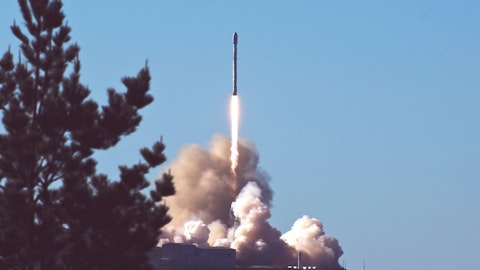Myles Minter: Okay. And then the second question is just on duration. Thanks for supplying that Phase 1, 2 data. We’re going to see duration of immunogenicity out of the Phase 3 booster trial and what are your sort of predictions on the commonality neutralizing antibodies sort of as we get into the 6-month to 12-month period ahead of that trial?
Joseph Payne: Yes. I’d appreciate the question. Clearly, this data we shared today is very exciting and it’s very promising. We’re happy to see just a really strong durability signal from ARCT-154, it’s a good representation of this next-generation self-amplifying mRNA platform. It’s clearly different. So with respect to the Phase 3 dataset, we intend to share that data for the six-month time point later this year. And we will be more than happy to share that at that time.
Myles Minter: Hey, cool. Thanks for the questions.
Joseph Payne: Yes. Thanks, Myles.
Operator: Next question comes from Seamus Fernandez with Guggenheim Securities. Please go ahead.
Evan Wang: Hey guys, this is Evan Wang on for Seamus. I have two questions. First on COVID. Just wondering if you could share some color on the Japanese COVID market. So you’re trying to figure out some of the opportunity for ’23, ’24, particularly with I believe first 25 million vaccine purchase from Japan. And the expectations for additional orders. Second on OTC. Wondering if you can provide enrollment update there and what we can expect from the update later this year? Will that be specific to 810 or should we expect a broader update as well? Thank you.
Joseph Payne: All right. So your first question is with respect to the opportunity for vaccine purchases in Japan. right? I guess I’ll turn that over to Andy. Do you want to address that?
Andy Sassine: Yes. I think we obviously are very excited that the Japanese government continues to purchase the vaccines, the COVID-related vaccine for its population. And historically they purchased about 80 million vaccines as of the last 12 months that we have record from the Japanese government. So certainly, the future orders that we’re currently seeing and anticipating are certainly a testament to their concern about COVID during an endemic phase here and certainly, the approval of Daiichi in Japan for a conventional mRNA vaccine made in Japan is certainly viewed as a very favorable here for not only Arcturus but our partners Meiji and CSL, because the Japanese government is very committed to ensuring that in the future Japan will be vertically integrated and completely independent of any future manufacturers for any related pandemic type of viruses.
And I think that’s pretty exciting that the government has taken on this initiative to be self-sufficient and hopefully, we can be a part of it and we’ll certainly learn more soon. But with respect to specific orders, we really cannot provide that at this time, it will certainly be developed and articulated by Meiji and CSL.
Joseph Payne: And then with respect to your second question on ARCT-810 enrollment, I think we haven’t provided specific guidance there but we encourage people to look to other rare liver disease companies on the pace of their enrollment as a basic guide as to what to anticipate.
Evan Wang: So we have finished the enrollment of the Phase 1b portion of the trial and as Joe mentioned in his remarks that we intend to share some data around the 810 later on in the coming months.
Joseph Payne: Yes. Thanks, Evan.
Operator: Next question comes from Pete Stavropoulos with Cantor Fitzgerald. Please go ahead.
Pete Stavropoulos: Hi, Joe, Andy, and team. Thank you for taking my questions. Congratulations on all the progress and the booster data presented in MET-Rx. It was nice to see the non-inferiority and superiority in neutralizing capabilities compared to an approved vaccine. So our first question regarding the manufacturing capabilities in Japan. Can you potentially leverage them for outside Japan with 154 and possibly other future candidates or will the facility be strictly focused on COVID-vaccine?




